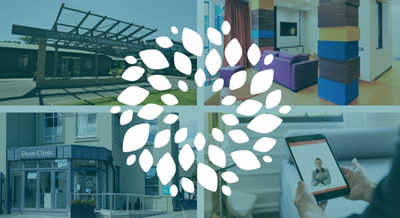Our Acceptance and Commitment Therapy (ACT) programme can help you to deal with thoughts and emotions by connecting with your values and learning to be present.
What is ACT?
We all get stuck at certain points in our life. ACT is an evidence-based therapy which aims to help you get “unstuck”. It teaches skills so that you can learn to better manage thoughts and emotions and take effective action in your life.
In ACT, there is a focus on connecting with what matters most to you, or your values. This helps you to align your actions with your values and to move towards where you really want to be. There is also a focus on practicing mindfulness skills, which can help you to unhook from unhelpful thoughts and to struggle less with uncomfortable emotions.
ACT aims to support you to increase your “psychological flexibility” and to deal with your experiences in a healthy, balanced way. Psychological flexibility means you are able to feel more open, to connect more fully with the present moment, and to be guided by your values in how you act. When you have greater psychological flexibility, it does not mean you will never be stressed or feel down again. Instead, it means that, if difficult or unwelcome situations or experiences come up, you are better able to respond by adapting and applying the skills you have learned.
What is the ACT programme?
In St Patrick’s Mental Health Services (SPMHS), we offer an online group programme based in the principles and skills of ACT.
Through our ACT programme, you will learn new skills to help you deal with difficulties you might experience in your daily life and to improve your levels of psychological flexibility. As part of this, our ACT programme puts an emphasis on helping you to connect with your values and developing mindfulness skills.
The ACT programme is informed by polyvagal theory. Polyvagal theory, developed by Dr Stephen Porges, is about understanding and shaping the autonomic nervous system (part of the nervous system which regulates a number of bodily functions that happen unconsciously or automatically). The polyvagal-informed aspects of the ACT programme will help you to better understand and regulate your nervous system so that you can spend more time in a state of safety and connection.
In all, the ACT programme covers the areas below.
- Introduction | Looking at our lives in terms of workability.
- Connection | Exploring how to live more in the moment, which has been shown to help support our mental health and quality of life.
- Openness | Learning the skills to expand our lives beyond thinking and emotional traps by opening up and bringing more compassion to unhelpful thoughts, uncomfortable emotions, unwanted life experiences and ourselves.
- Engagement | Connecting with our values, learning strategies to break down our long-term goals into smaller, manageable steps, and learning skills to help us get back on track.
- Autonomic nervous system | Mapping, tracking and shaping our autonomic nervous systems so that we can spend less time in the survival states of “fight and flight” and “drain and dropout” and more time in a state of safe and social regulation.
- Review of ACT | Considering how to apply ACT skills in your life on a daily basis.
How does the programme run?
The ACT programme is a day programme which runs online. It takes place over 12 weekly group sessions, which each last for three hours. It is led by two ACT therapists, and co-facilitated by a team of experienced mental health nurses.
Optional aftercare is also available if you have attended at least 10 of the 12 weekly sessions. This aftercare takes place as one three-hour group each month for 12 months, following completion of the ACT programme. A further year of advanced ACT aftercare, in the form of one three-hour group every second month, is also available if you attend at least nine of the 12 monthly aftercare sessions. These aftercare groups also take place online.
The ACT programme is confidential. Throughout the programme and in aftercare, we insist that personal information shared between the group members and the therapists be treated with respect and is not spoken about outside the group. Confidentiality and a group agreement is discussed and confirmed in session one.
The programme’s online sessions take place on Microsoft Teams. Our Service User IT Support (SUITS) service offers technical support if you have any questions or need help with joining the sessions.
Who is the programme for?
The programme may be helpful if you have experienced:
- Addiction
- Anxiety
- Bipolar disorder
- Depression
- Obsessive Compulsive Disorder.
To take part, you must:
- Be open to learn new skills
- Commit to attending at least 11 of the 12 sessions
- Remain under the care of your referrer (for both the programme and aftercare)
Please note that, if you are experiencing severe depression, severe psychosis, or severe bipolar disorder, ACT may not be suitable for you.
How can you join the programme?
If you are a service user here in SPMHS, you can be referred to the ACT programme by your consultant or multidisciplinary team (MDT). If you are not receiving care in SPMHS, your GP or an external consultant can refer you to the programme.
When you are referred to ACT, the programme facilitators will first complete an assessment with you to make sure it is suitable for your needs. If the programme is suitable for you, the facilitator will then let you know of the start date.
Please note that there is a maximum of 13 participants in each ACT group, so there may be a waiting period before you can join a group.
If you have any questions about ACT, please email stedsdayservices@stpatricks.ie.




